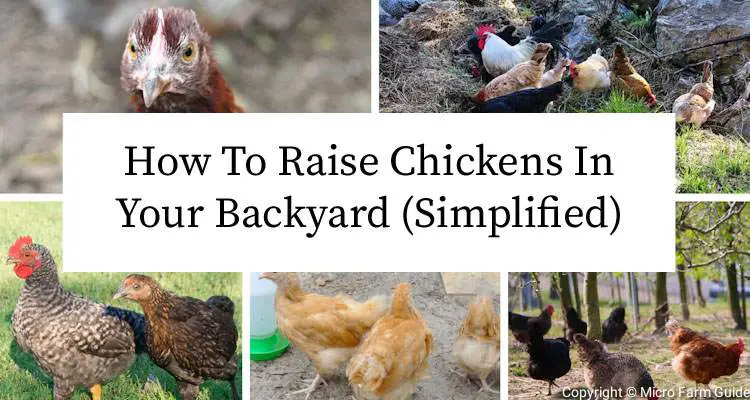Did you know that chickens have unique personalities? They can be curious, charming, classy, and even sassy!
As a result, raising chickens can be quite entertaining! Some people may even say therapeutic.
However, there are some things you’ll need to know before attempting to start a flock of your own.
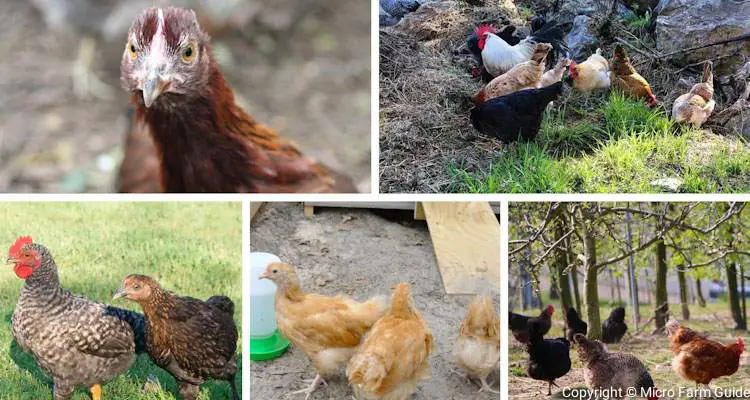
In this article, we’ll discuss how to raise chickens in your backyard, including tips to keep them happy and healthy for years to come. Let’s dive in!
How To Choose the Right Backyard Chickens
Before you go out and get your first flock of chickens, there are some things to consider.
For example, you need to know your reason for raising chickens, suitable breeds, the number of chicks, or whether you can even raise them in your area.
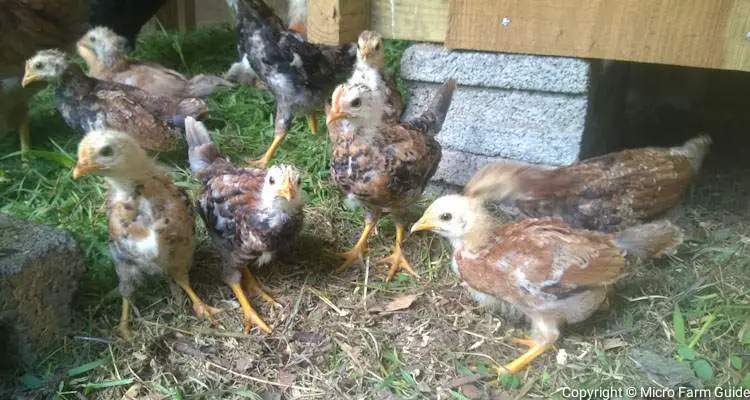
Now, if you’re looking for detailed guides on raising chickens for meat or eggs, you can read my other articles:
However, when it comes to backyard chickens, they usually serve other purposes, such as pets or even therapy.
As a result, you’ll want friendly, easy-to-care-for, dual-purpose chickens like Rhode Island Reds, Orpingtons, or Sussex.
These breeds are known for being gentle and great for first-time chicken owners.
However, they can be difficult to obtain based on your location. So, you might have to make do with whatever you get, including local “yard fowls.”
Ideally, you’ll want to start with 3 to 5 baby chicks. It’s a great idea to have a rooster in the flock since they help to protect the hens and keep order.
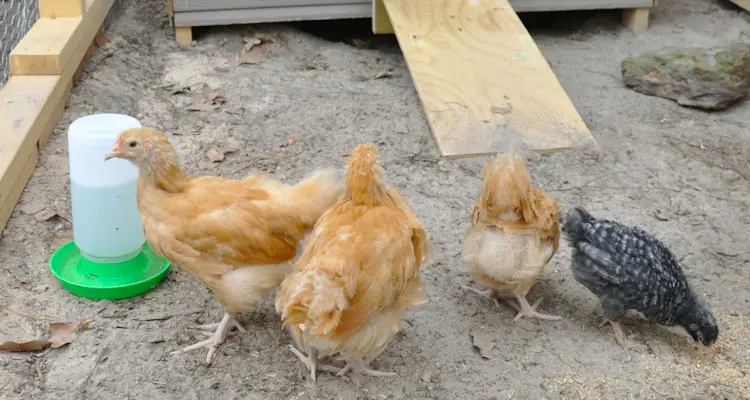
However, roosters are not necessary for the hens to lay eggs. It is even against regulations to keep roosters in certain areas due to their noise.
So, you’ll have to research this as well. Most of this information should be available at your local agricultural office or H.O.A. if you’re a part of one.
Once you’ve finalized the type and amount of chickens, it’s time to decide on safe housing.
Setting Up Your Chicken Coop
A chicken coop, or chicken house, is where your chickens will spend most of their lives.
The coop’s design will vary depending on your location and climate, with some having access to a yard, food forest, or an enclosed area called a run.
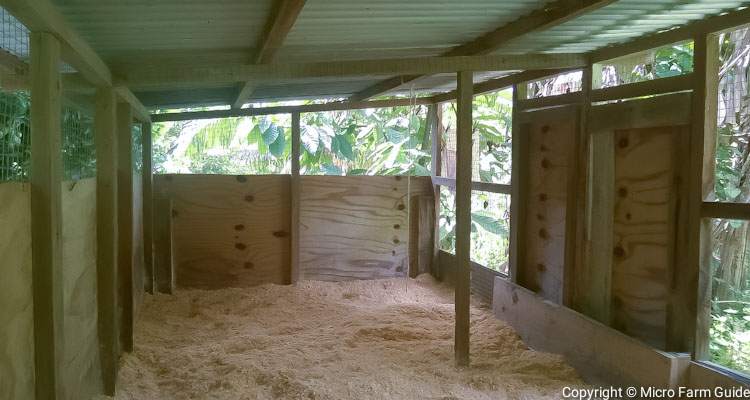
Ideally, your chicken coop should be in a sunny location close to your home. This will allow you to monitor your flock with easy access to food, water, eggs, etc.
It should be protected from excess rain or wind and curious creatures, including pets.
We’ll discuss more about protecting your chickens in the next section, but for now, just note that “everything wants to eat your chickens.”

In terms of coops, you can either build it yourself or purchase a pre-made kit. You can find coop plans online or explore pre-made options at your local farm supply store.
Either way, ensure it is sturdy and spacious enough for your chicks. Ideally, each chicken should have at least 10 square feet.
However, if the coop includes a run or access to the outside, you can get away with about 5 square feet per bird indoors.
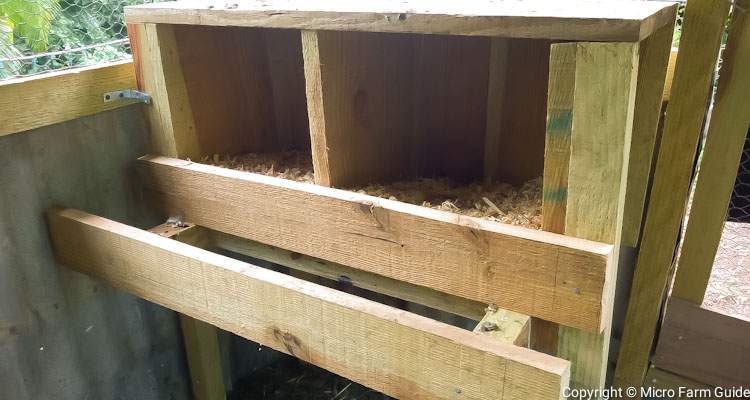
Also, ensure you include nesting boxes for egg-laying, roosts for sleeping, feeders, and waterers for everyday meals.
Personally, I also like to ensure that my chicken houses have deep litter systems to manage potential odors and give the chickens a more natural flooring to explore.
Caring for Your Chickens
Chickens are independent; they like to go where they want, when they want, and can put up a fight when needed.
However, in the early days, you must take extra care, especially if starting with baby chicks without a mother hen.
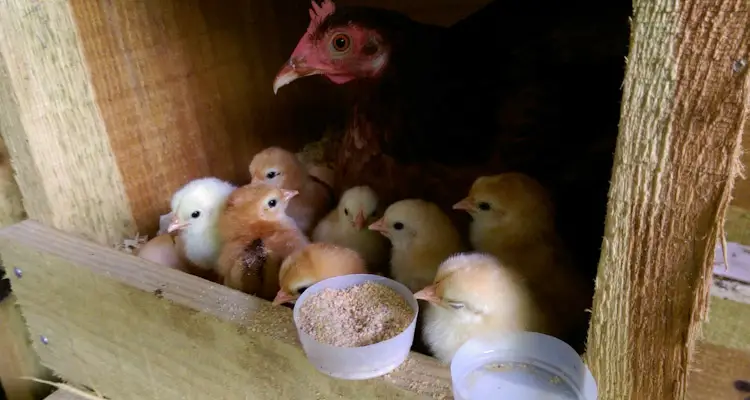
For example, you will need to ensure that your chicken receives a balanced diet. This can include grain, insects, kitchen scraps, vegetables, and commercial feed, according to their stage of growth.
Commercial feeds are usually labeled as pullet starter, pullet grower or developer, and Layer feeds of different percentages.
Additionally, you’ll need to provide your chickens with a source of grit or tiny rock to assist them in digestion.
Every day, you’ll have to ensure your chickens have enough food and clean water, cleaning or storing the bedding when necessary.
As the hens start to lay, you’ll also have to add tasks such as collecting eggs and ensuring your hens have a source of calcium, such as eggshells or oyster shells.
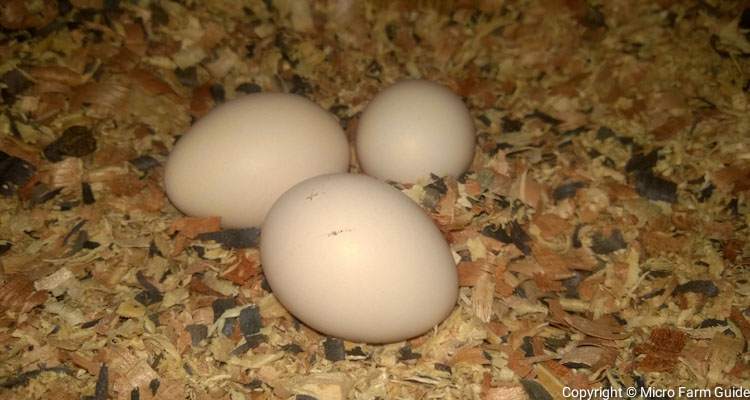
Spending time with your chickens is essential. They’ll get to know you, and you’ll see their personalities shine.
But most importantly, you can monitor for signs of illness, stress, or other abnormal behaviors.
Keeping Your Chickens Safe
As mentioned before, everything wants to make a meal of your chickens.
Possums, mongooses, hawks, and even pets can be threats. To protect your chickens, you’ll need a secure coop with sturdy fencing and locks.
Ensure you seal all gaps larger than 1 inch square, and please remember to close the coop at night.
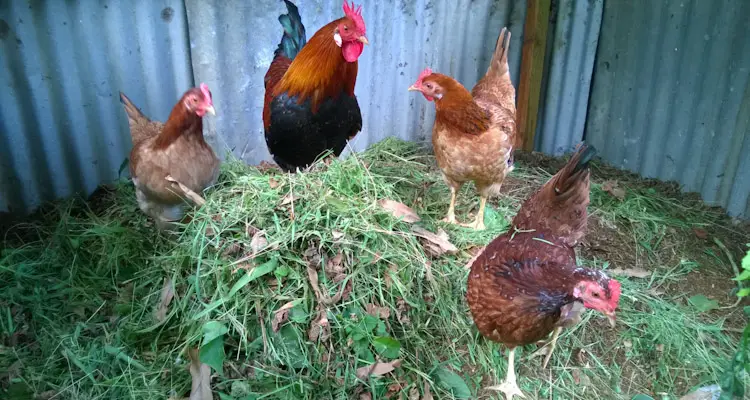
The exact safety measures you take will depend on your location and known predators or adverse weather conditions.
That said, there are some dangers you cannot see. As a result, you’ll have to take additional biosecurity measures if your area is prone to certain viral diseases.
Sometimes, you might need to install a disinfecting foot bath, and vaccinate your baby chicks against endemic diseases such as Avian flu and Newcastle disease.

However, you can also boost your flock’s health by adding herbs like Aloe Vera and garlic to their diet. These have medicinal and immune-strengthening properties.
In other words, you need to provide essential protection for your area but allow the chickens a certain level of freedom.
Sustainability and Your Backyard Chickens
Chickens are excellent at recycling kitchen scraps. They love pecking at vegetable leftovers, which means less waste in your trash.
Plus, they can help compost organic materials by shredding larger pieces and mixing them with their droppings, which speeds up the process.
All this lessens the need to burn or dispose of organic waste in landfills.

Chicken droppings are fantastic for your garden, making a nitrogen-rich natural fertilizer.
This can be used instead of imported, store-bought, synthetic alternatives, saving money while reducing the need for mining, processing, and transporting farming inputs from faraway lands.
Final Thoughts
Thank you for reading our beginner’s guide to raising backyard chickens!
In this guide, we’ve discussed everything from choosing the right chickens to keeping them safe from predators and other dangers.
However, as mentioned, it’s not just about raising chickens but creating a happy, healthy, an eco-friendly environment in your backyard.
So, if you’re eager to learn more, don’t forget to explore other related topics on our Natural Farming Page. Have fun!
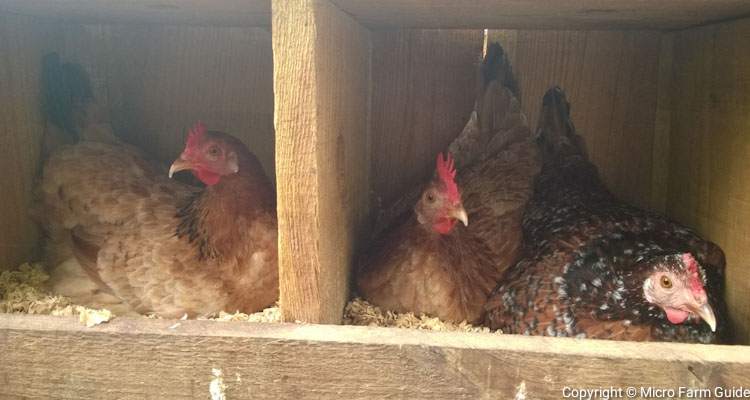
Related Questions
1. How many chickens should a beginner start with?
A beginner should start with around 3 to 5 chickens. This allows you to learn while allowing the flock to socialize and establish a proper pecking order.
2. How do I start raising backyard chickens?
To start raising backyard chickens, first, do your research. Then, choose suitable breeds and a safe coop design for your area. Ensure you provide your chicks with enough food, water, and attention.
3. How many eggs will 4 chickens lay in a week?
Four chickens can lay around 20 eggs per week, about 4 to 5 eggs per chicken. But it varies based on breed, age, and conditions. For example, Rhode Island Reds tend to lay more than fancy breeds.
4. What do chickens need in a backyard?
Chickens need a safe coop, fresh water, balanced food, outdoor space to roam, and other chicks to socialize.
References
University Of Minnesota. Raising Chickens For Eggs. extension.umn.edu. Accessed October 2023
Mississippi State University. Poultry Beginnings: Raise Your Own Backyard Chickens. extension.msstate.edu. Accessed October 2023
Utah State University. Raising Backyard Chickens Resources. extension.usu.edu. Accessed October 2023
IFAS Extension. Raising Backyard Chickens For Eggs. edis.ifas.ufl.edu. Accessed October 2023

